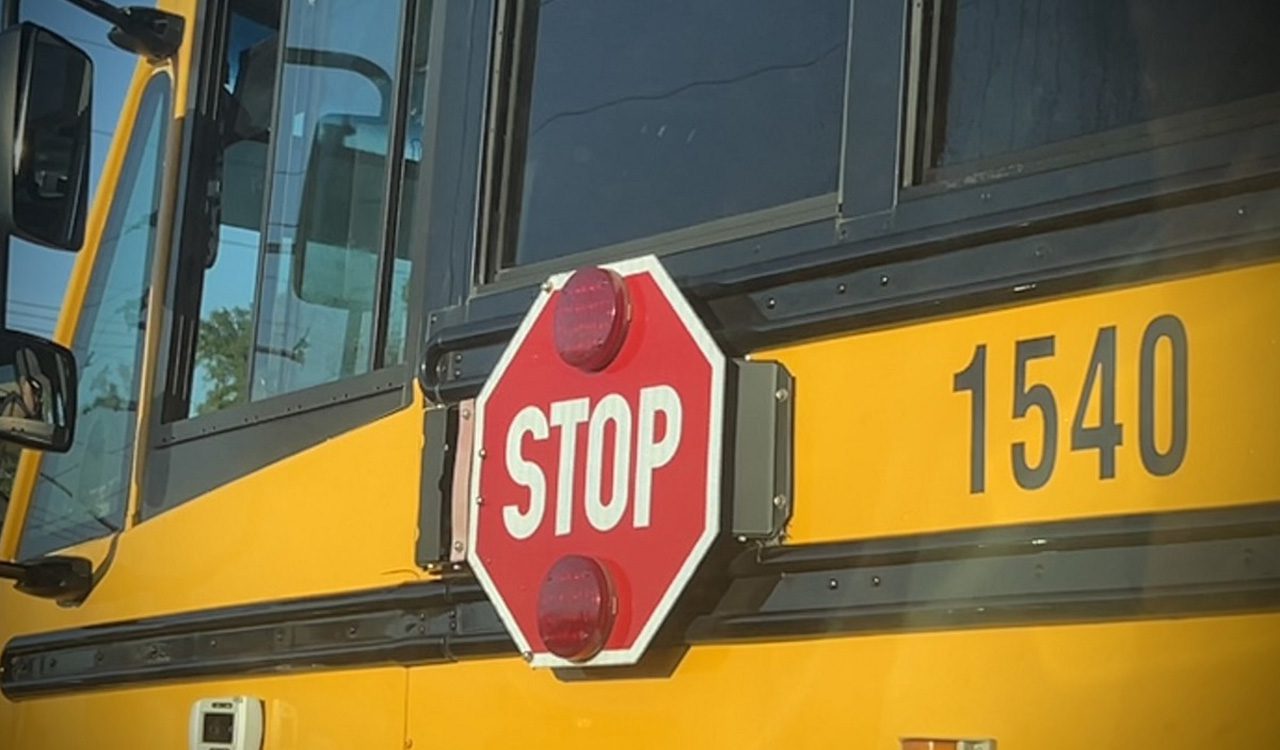
Polk County School Board Considers Spending $920K For Bus Tracking System
PCPS has been field testing the system, which includes a parent app and tablets that can read student IDs.
LkldNow | By Kimberly C. Moore | February 21, 2024
The Polk County School Board will vote Tuesday on whether to spend $920,000 for a school bus tracking system that would let the district see which students are on buses, where the buses are on their routes and give substitute drivers turn-by-turn directions.
The ReaXium system also has a companion app for Android and iOS devices that would allow parents to see how far away their child’s bus is and whether their child is on board.
The Polk County Public Schools transportation department has been field testing the system — which includes bracket-mounted tablets that can read student ID badges — on about 10 of its 511 school buses this year.
Rob Davis, assistant superintendent of support services, told board members at a work session on Feb. 13 that it’s not the first system the district has tested, but ReaXium has ticked the most boxes in terms of features, including tracking bus maintenance and alerting parents if a bus is broken down and when a new bus will be arriving.
Davis said he has been looking for something like this for 20 years.
If the School Board approves spending $919,222 this year and $632,642 annually for the next four years, the system could be implemented for nearly 50,000 PCPS bus riders plus their charter school counterparts by the time the 2024-25 school year begins in August.
“At the start of every school year, it’s not uncommon for us to get concerns about a kindergartener or a young student getting on the wrong bus, getting off at the wrong stop, and this will help prevent some of that,” said Superintendent Fred Heid. “Because if the student attempts to get on the wrong bus and scans their badge, their ID badge is going to say, ‘You don’t ride this bus.’ The driver can say, ‘No, no, no. Let’s take you back off the bus.’ So it prevents these errors for us and increases our overall safety and our communication with parents.”
Currently, the district’s website houses a page for daily bus delays. A check on Feb. 13 showed 72 bus routes delayed from 20 minutes up to an hour.
Accurate reporting
The program would help Davis’ staff with one of the most labor intensive parts of their jobs each year — doing the annual count of bus riders for the Florida Department of Education, which allocates transportation funds.
Currently, bus drivers and aides take roll by hand as each student boards the bus. Accurate reporting is crucial to recovering every dollar available from the state.

“The staff separates all the reports and they manually verify every student that has been counted … when we report the final number, it has to be accurate and it has to be balanced,” Davis told board members. “Manatee County, when they did a program, they went from thousands of hours to hundreds of hours.”
Davis said the system would add an extra layer of safety during field trips, making sure all students are on board before the bus pulls out — and determining which student might still be inside a museum or park.
“The ridership reports will also be real time, so Transportation office staff will be able to tell which bus a student is on, or which stop a student got on or off at, and at exactly what time to help answer parent or law enforcement questions,” a budget impact analysis said.
Currently, if a bus is in an accident, the driver has to produce a report of where each student was sitting on the bus, which can take hours, depending on the severity of the accident.
“If you have 60 students on your bus, that can be a challenge,” Davis said. “With this program, with assigned seats, we can get that information printed and have it to law enforcement without taking up two hours to get an accurate bus count.”
Peace of mind for parents
School Board member Lisa Miller, whose son is profoundly autistic and non-verbal, said the system would be particularly reassuring for parents of very young students and students with special needs.
“I think for kindergarten, (grade) one and two, and your center schools, this is going to be vital — and high schoolers too,” Miller said. “Because, you know, … the students who cannot speak or have trouble communicating where they live or who they are, this is a great safety feature.”
Parents on a Facebook page for special needs students said they had not heard of the possibility of the system, but they welcome it. Past tests on systems did not include a lot of information from district staff about how to download apps or set up parent accounts.
Bus driver Margie Whitmer-Patterson said she is excited about the new program.
“Once the kinks are worked out, it will be an awesome thing so parents will know when, where, what bus, and time of arrival,” Whitmer-Patterson said. “No more waiting on hold. It’s frustrating enough.”
She said every once in a while, a child will remain on the bus by accident.
“I keep them on board and make sure of where they go to,” she added.
High cost is a concern for some
But not everyone was comfortable with the price tag, which works out to roughly $18.40 per bus rider this year and $12.65 per bus rider in future years.
Lake Alfred Polytechnic Academy sixth-grade advanced English language arts and literacy studies teacher Kristina Thorwegen said the money could be better spent in classrooms.
“While I understand the importance of knowing where our children are, I think that this idea is a major problem,” Thorwegen said. “We are BARELY surviving as PCPS Staff. Everyone is at their wit’s end, straining to make everything work, and I am not just talking about monetarily. The money, time, and energy that that would cost could go to so many more places. We already have buses that show up 30-40 minutes after school has started. We are as short on bus drivers as well as school staff. This process will only cause the amount of lateness to grow. We NEED parents, guardians, and community members to get together on the same page, stop bickering about books, and realize that our schools are on fire! We need to be putting pressure on the board and on Tally. That is the only way that we are going to get substantial and lasting change.”
Davis said they will have to change some student behavior to get them accustomed to always carrying their ID badge, which will use a barcode initially. He added that the district would probably transfer to a Radio Frequency Identification card system in the future.
“They’re are using cards in the cafeteria, going into a media center,” Davis said. “Big picture down the road is being able to get into a hallway that they are supposed to be in, a hallway that they shouldn’t be in, and things of that nature.”
The School Board plans to vote on the measure at its board meeting Tuesday at 5 p.m





